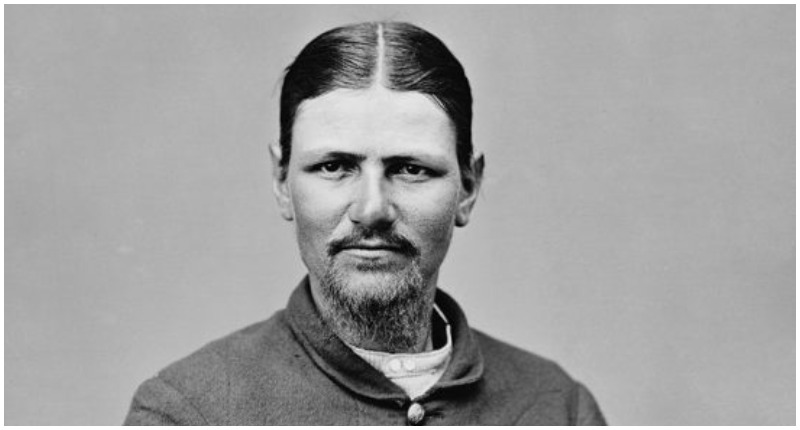In April of 1865, the American Civil War was finally over except for a few battles in the Western theater by troops who were unaware of General Robert E. Lee’s surrender.
Abraham Lincoln, the sixteenth president, had just been relieved of an enormous burden and decided to take an evening to relax at a performance at Ford’s Theatre before he began the daunting task of putting the country back together.
During the performance, disgruntled Southern actor, John Wilkes Booth, snuck up behind the President’s box seat and shot Lincoln in the head.
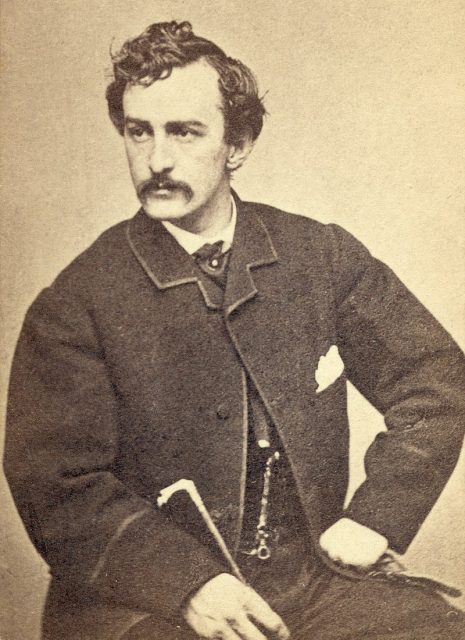
He swung down to the stage on a curtain, breaking his leg, and shouted what is commonly believed to be Sic Semper Tyrannis, Latin for thus ever to tyrants, he then ran out the backstage door and escaped on a horse.
For days after the assassination, rumors of Booth’s arrest were appearing in the papers, but it wasn’t until April 26, twelve days after the assassination, that the twenty-five men from the 16th New York Cavalry surrounded Booth and one of his accomplices, David Edgar Herold, in the barn of John and William Garrett near Port Royal, Virginia.
Negotiating with Booth, Lieutenant Doherty, the commander of the men, convinced Herold to surrender, but Booth maintained a defiant attitude even after the barn was set on fire and the walls were crumbling around him.
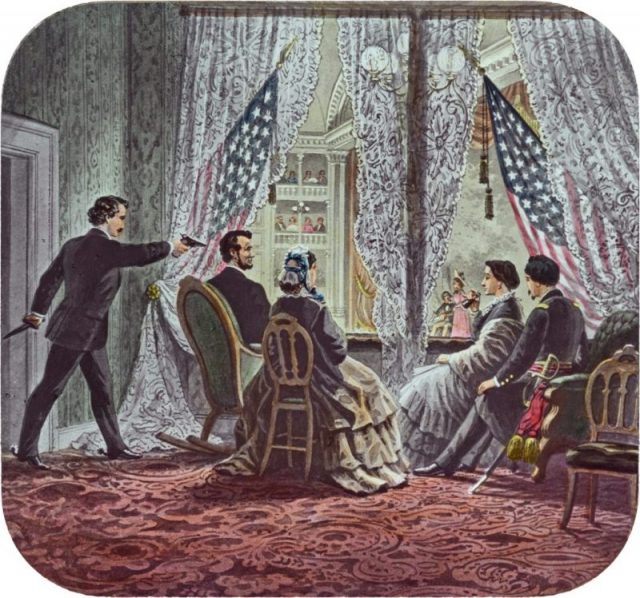
One of the soldiers, Thomas P. “Boston” Corbett, could see Booth through the slats in the walls and determined that Booth was going to run out of the barn with guns blazing. Even though it was ordered to take Booth alive, Corbett took it upon himself to shoot Booth.
According to the Evening Star newspaper of Washington D.C., dated April 27, 1865, on page two, Corbett said he had intended to shoot Booth in the shoulder, but the bullet ended up in Booth’s neck and within three hours the assassin was dead.

Corbett suddenly became the toast of Washington. People congratulated him and slapped him on the back, and Matthew Brady, Washington’s most celebrated photographer, took several photographs of him. The leaders in Washington, however, were upset that Booth had not been taken alive. Corbett was arrested for disobeying orders but was quickly released by Edwin Stanton, the Secretary of War.
Corbett, who had been born in London, came to the United States with his parents in about 1839, when he was seven years old. He grew up in Troy, New York and made his living as a hatter.

He later moved to Danbury, Connecticut and married a local woman. She and their infant child died in childbirth, causing Corbett to begin drinking, drifting around from town to town, and losing his desire for life. Confronted by a street preacher in Boston, Massachusetts, he saw the error of his ways and quickly became a member of the Methodist Episcopal Church.
He was baptized and changed his name to Boston to honor the city in which he had received his awakening. His newfound religion took over his life, and he became a fanatic who sat on street corners loudly professing the glory of God. In order to remain completely pious, he castrated himself, went to dinner and a meeting, and then checked himself into a hospital.

Corbett joined the army at the outbreak of the Civil War, but his religious zeal caused him to butt heads with his superiors, and he was court-martialed in 1863.
He rejoined the army with the New York 16th but was captured by Colonel John Mosby and sent to Andersonville prison for five months where he endured some of the worst possible conditions faced by Union prisoners.
In 1864, he was released and sent to the Army hospital in Maryland to recover. Corbett received a promotion to sergeant and was discharged in 1865.
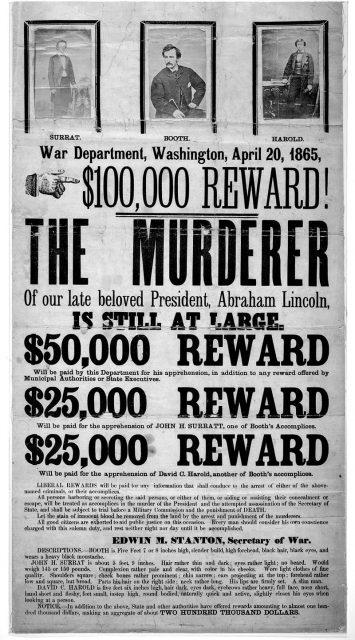
Corbett resumed his trade as a hatter and drifted around New England preaching and giving lectures until he had become so unhinged, he began believing people were after him.
He thought the lawmakers in Washington and Booth’s sympathizers were looking for him, so he began carrying weapons with him at all times. He threatened anyone who disagreed with him over a religious matter, even his employers.
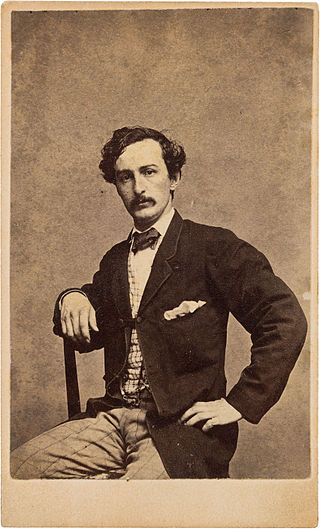
Because of his paranoia, Corbett moved west to Kansas where he built a small dugout cabin with holes in the walls so he could shoot anyone who came near his property. He was arrested for threatening the townspeople, and during his hearing, threatened the entire courtroom with his two revolvers.
Doctors have determined that the mercury used in the hat-making trade at the time was probably the reason for Corbett’s descent into insanity. According to American Scholar.com, the symptoms of mercury poisoning include fits of anger and violent behavior, exaggerated response to stimulation, diminished self-control, anxiety and insomnia—all of which Corbett demonstrated.
In 1887, he received an appointment as doorkeeper for the Kansas House of Representatives, but less than a month later, he became convinced that the members of the House were plotting against him.
On February 15th, he brought his guns to work and threatened the Speaker of the House, the press, and the staff. He was taken away to the insane asylum in Topeka. In 1888, he escaped on a stolen horse and bought a train ticket with the intention of going to Mexico. That was the last time anyone saw or heard from Boston Corbett.
